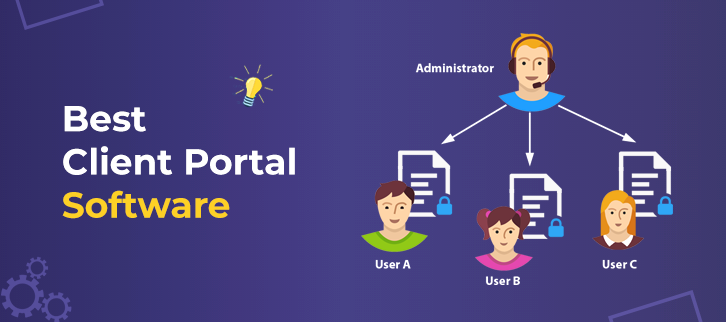If there’s anything that businesses have had to learn over the past few years is that clients want to help themselves, and it’s not surprising to see why. Self-service is a lot faster and more direct and clients often start looking for a solution from a company’s online resources.
For businesses, this means they don’t have to spend time resolving simple issues, especially if they’re facing a massive wave of support requests and clients in need of quick support.
As the self-service trend gradually catches on, client portals have emerged as less of a bonus and more of an expectation for companies.
A client portal is a secure online platform that offers clients a single entry point so they can access confidential information or gated content associated with them. They can also perform various tasks such as placing orders, making payments, and signing documents electronically.
But that’s not all.
How companies and their clients use client portals has evolved rapidly in recent years. This article covers five key functions you can expect from a highly effective client portal software.
1. Provide a Secure Working Space
Security is, perhaps, the single-most important feature clients look for in a functional client portal. As a business, you have to make sure the platform is secure so that unauthorized people can’t access the stored documents and data.
A good online platform should allow the company to set different levels of access depending on the nature of business and system involved. This way, different users such as managers, network administrators, and employees will have more access rights than others depending on the permissions set.
2. Save Time and Money
You might find the cost of setting up a client portal a bit too high but modern advancements in client portal technology have made it quite affordable to implement a client portal.
Additionally, implementing a client portal will help your business save time and money significantly. If you’re wondering how, a client portal will eliminate a lot of ineffective business practices such as sending documents by mail. It will also help make a business paperless and clients can generate and view reports instead of requesting the company.
3. Scale Operations
Many businesses in the startup phase tend to manage their client base through emails, in-person meetings, and a bit of personal innovation and ingenuity. However, as the company begins to grow, a customer portal becomes necessary to scale and manage the growing needs of the business.
Can you imagine having to email your bank each time you need to see your financial statement?
4. Access Data with Ease
Online portals provide a platform where companies and clients can access and store sensitive documents and information. This makes communication and collaboration on projects a lot easier since clients can simply log in to the portal from anywhere, using any device that’s internet-friendly.
5. Provide a Personalized Experience
Client portals can provide customers with a unique, personalized experience based on their data. Unlike static websites, portals can be customized for each user to provide valuable insights and information that will ensure customer loyalty and satisfaction.
Set Up a Client Portal Today
Creating and implementing a client portal will modernize your company and ensure that you interact with your customers in the most efficient way possible, as highlighted in the functionalities listed above.













